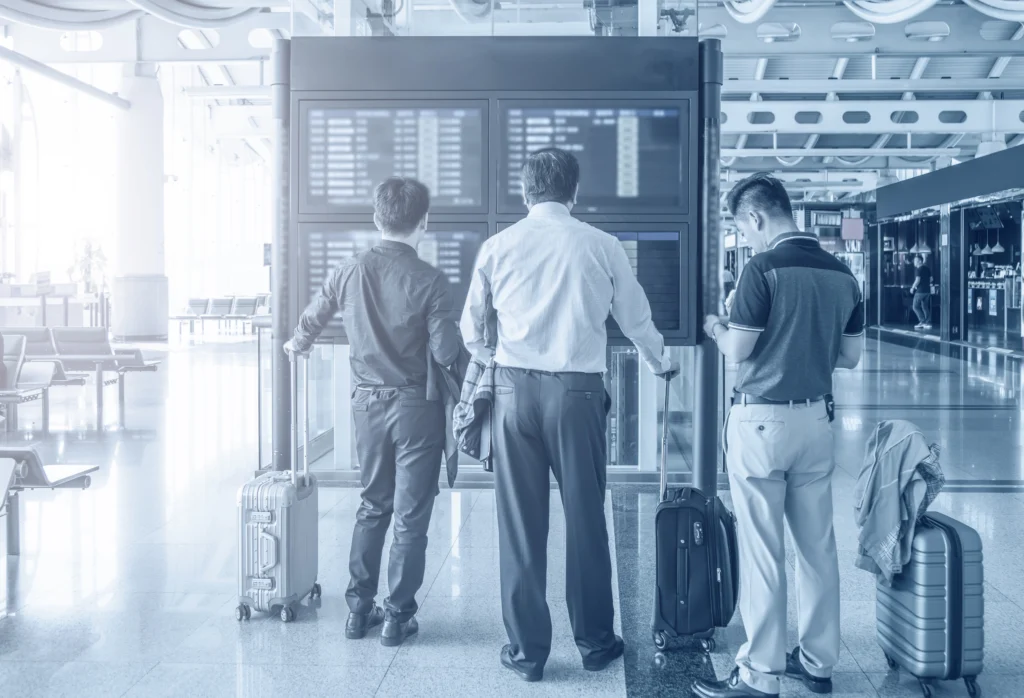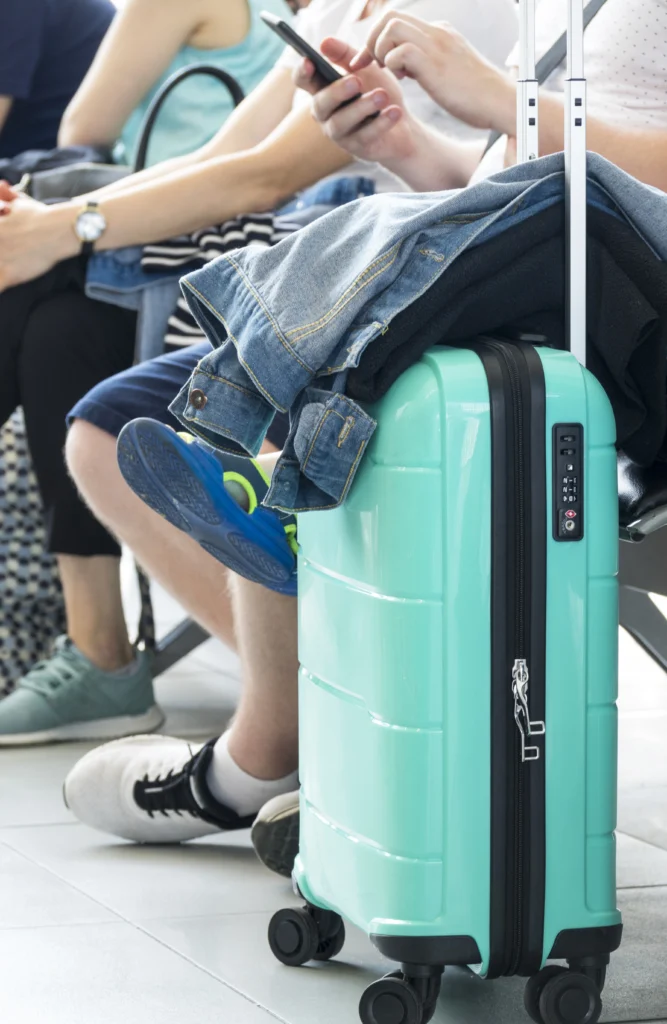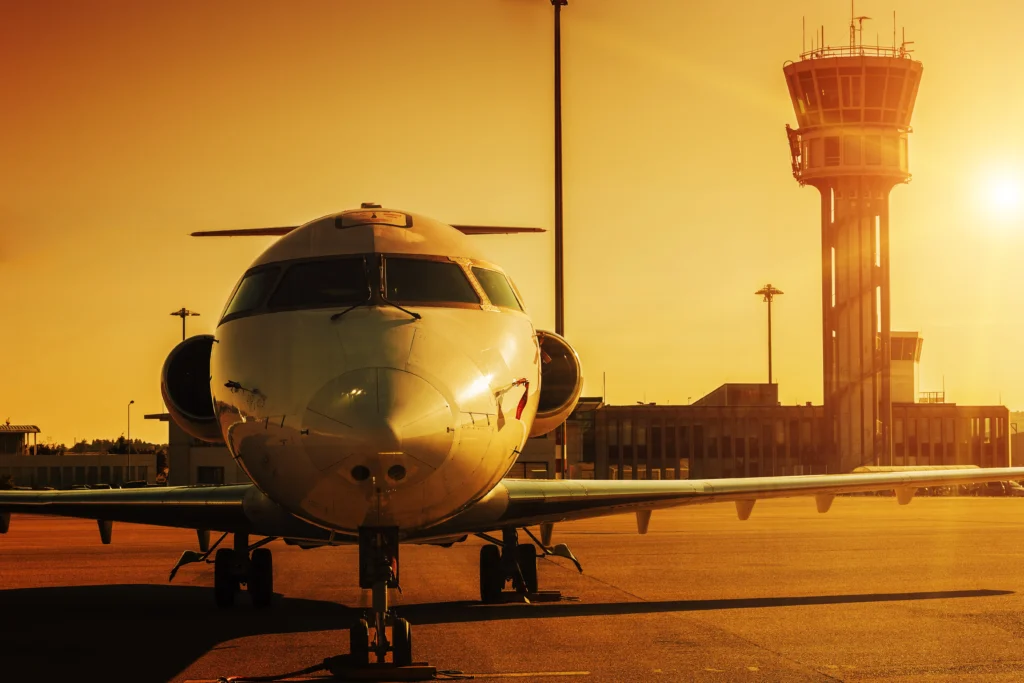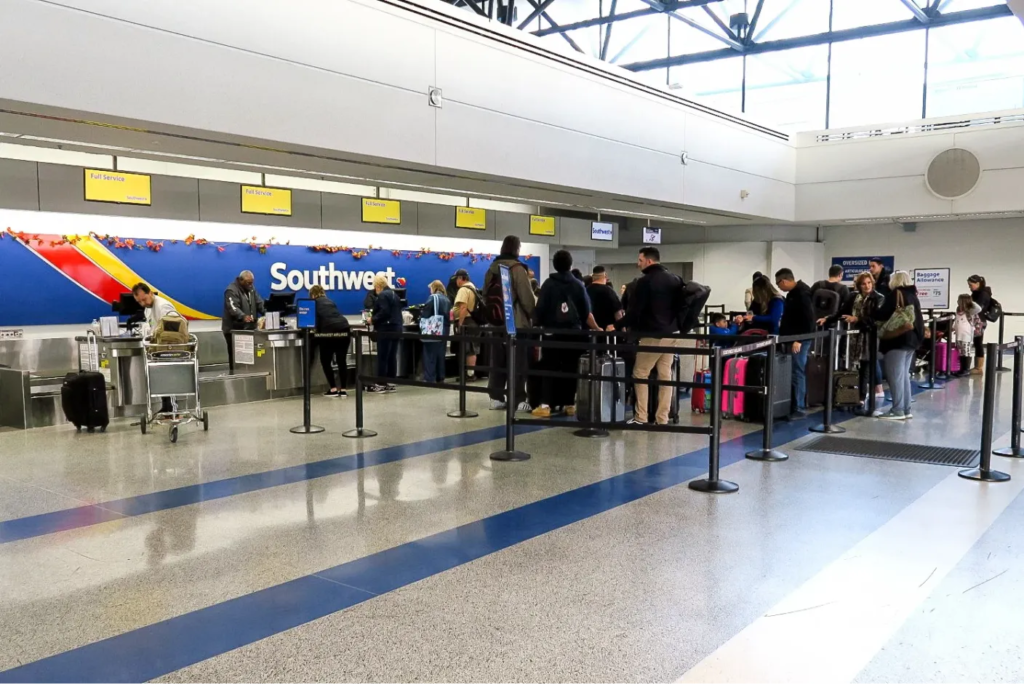Southwest Airlines has long been known for its customer-friendly policies, including free checked bags, open seating, and a generous rewards program. However, recent changes to these signature perks have left many loyal customers questioning their commitment to the airline. From the introduction of checked baggage fees to a shift toward assigned seating and devalued Rapid Rewards points, these adjustments mark a significant departure from Southwest’s traditional approach. As customer frustration grows, will Southwest be able to maintain its once-loyal base, or is it at risk of losing its competitive edge? Let’s dive into what these changes mean for frequent flyers and the airline’s future.

Introduction of Checked Baggage Fees
For years, Southwest Airlines stood out in the airline industry by offering two free checked bags for every passenger—one of its most beloved and differentiating perks. This policy not only set Southwest apart from competitors but also built a strong base of loyal travelers who appreciated the added value, particularly families, frequent flyers, and budget-conscious travelers.
However, beginning May 28, 2025, this long-standing tradition will come to an end. Southwest Airlines has announced that it will begin charging passengers for checked luggage, following in the footsteps of most major U.S. airlines. While the exact pricing structure has yet to be fully detailed, initial reports suggest that the first checked bag will cost around $30, with additional fees for second and third bags.
Despite this shift, some passengers will remain exempt from the new baggage fees. These include:
- Top-tier Rapid Rewards members
- Business Select fare travelers
- Southwest Rapid Rewards credit card holders
Why the Change?
The airline cites financial sustainability and increased revenue generation as the primary reasons for implementing baggage fees. With rising operational costs, including fuel prices and labor expenses, Southwest aims to boost profitability and align with industry norms.
Additionally, executives argue that eliminating free checked bags will help offset other operational costs while keeping base fares competitive. Southwest CEO Bob Jordan stated that while the decision was difficult, it was necessary to ensure the airline’s long-term financial health and continued service improvements.
Customer Reactions
The announcement has been met with widespread disappointment and frustration among Southwest’s loyal travelers. Many customers feel that Southwest is losing its “customer-first” identity, which once made it a standout choice. Frequent flyers and families who rely on the airline for its affordability are particularly disheartened, as this change will increase overall travel expenses.
Social media platforms and travel forums have been flooded with comments from frustrated customers, with some vowing to reconsider their loyalty to the airline. One common sentiment is that Southwest is slowly “becoming just like every other airline,” removing the perks that once made it special.
Will Southwest Lose Its Competitive Edge?
Southwest has built a strong reputation around its “Bags Fly Free” slogan, and removing this perk could impact customer retention and brand loyalty. The key question is whether Southwest’s other benefits—such as flexible ticket policies, a friendly corporate culture, and historically strong customer service—will be enough to retain passengers despite the new fees.
As Southwest navigates this transition, the airline will need to carefully balance profitability with customer satisfaction. Whether this change will significantly impact bookings and loyalty remains to be seen, but one thing is clear: Southwest is taking a gamble by altering one of its most iconic policies.

Transition to Assigned Seating
For decades, Southwest Airlines has been known for its unique open seating policy, allowing passengers to choose their own seats once they board the plane. This approach, combined with the airline’s boarding group system (A, B, and C), has been a signature feature of Southwest’s identity. Many loyal customers appreciate this system for its efficiency and simplicity, while others find it stressful, as it often leads to a rush for preferred seats.
However, this long-standing tradition is coming to an end. Later this year, Southwest Airlines plans to introduce assigned seating, moving toward the standard practice used by most other airlines. While full details are still emerging, Southwest has indicated that passengers will select seats at the time of booking rather than during boarding.
Why the Change?
Southwest’s decision to shift to assigned seating is driven by several key factors:
- Attracting New Customers – While many travelers enjoy the flexibility of open seating, some prefer the predictability of assigned seats. Business travelers, families, and those who dislike the stress of seat selection may find this change more appealing.
- Operational Efficiency – Assigned seating could help streamline the boarding process by reducing seat disputes and last-minute reshuffling. In turn, this could lead to faster turnaround times and fewer delays.
- Industry Standardization – Most major airlines already offer assigned seating, and Southwest’s shift aligns it more closely with its competitors.
- Potential for New Revenue Streams – By allowing customers to select specific seats in advance, Southwest could introduce premium seat options for an additional fee, following a model similar to other airlines that charge extra for aisle, window, or front-row seats.
Customer Reactions
The announcement of assigned seating has sparked mixed reactions among Southwest’s loyal travelers. Some passengers, particularly those who disliked the stress of open seating, welcome the change as it offers more predictability. Families traveling together and those who prefer window or aisle seats may find the system more convenient.
However, many long-time Southwest fans are disappointed by the decision, feeling that it erodes one of the airline’s defining features. The ability to secure prime seating by simply checking in early or purchasing EarlyBird Check-In was a strategy many frequent flyers enjoyed. Additionally, some worry that assigned seating could lead to extra fees for preferred seats, adding costs that were previously avoidable.
Will This Impact Southwest’s Brand?
Southwest’s open seating policy was one of its key differentiators in a competitive airline industry. Moving to assigned seating brings the airline in line with competitors but also risks alienating loyal customers who valued the flexibility and unique experience of Southwest flights.
The airline’s challenge now will be managing this transition while maintaining customer satisfaction. If Southwest implements assigned seating without excessive fees and continues to prioritize a smooth travel experience, the change may be accepted over time. However, if travelers see it as another step toward becoming just another airline, it could impact customer loyalty.
As Southwest moves forward with this shift, it remains to be seen whether assigned seating will be a positive evolution or a decision that pushes long-time customers away.

Modifications to the Rapid Rewards Program
Southwest Airlines has long been praised for its Rapid Rewards loyalty program, which allowed frequent travelers to accumulate points generously and redeem them for flights with relative ease. Unlike many competitor programs, Southwest’s Rapid Rewards has historically been simple, transparent, and rewarding—one of the reasons the airline has maintained a dedicated customer base.
However, Southwest recently made abrupt changes to the Rapid Rewards program, significantly reducing the value of points earned on lower fare categories. These modifications, which took effect without prior notice, have left many loyal customers frustrated and questioning their continued loyalty to the airline.
What Has Changed?
The biggest change to the Rapid Rewards program is the devaluation of points earned per dollar spent, particularly for budget-conscious travelers who book Southwest’s lowest fare classes. The new structure significantly reduces earning potential for those who choose the airline’s most affordable fares:
- “Wanna Get Away” fares – Previously earned 6 points per dollar; now reduced to 2 points per dollar (a 67% decrease).
- “Wanna Get Away Plus” fares – Reduced from 8 points per dollar to 4 points per dollar.
- “Anytime” fares – Reduced from 10 points per dollar to 6 points per dollar.
- “Business Select” fares – Still earn the highest rate, but points per dollar have dropped from 12 to 8.
These cuts mean that passengers will now have to spend significantly more money to earn the same number of points as before, making it harder to accumulate enough for free flights.
Why the Change?
Southwest Airlines has stated that the modifications were necessary to better align the rewards program with the airline’s overall financial strategy. With rising operational costs and increased competition, Southwest is looking to ensure profitability while still offering an attractive rewards program.
However, the lack of prior communication about the changes has been a major source of frustration. Unlike other airlines that typically announce loyalty program adjustments months in advance, Southwest rolled out these changes with no warning, leaving many customers blindsided.

Customer Reactions
The response from loyal Southwest flyers has been overwhelmingly negative. Many travelers, especially those who frequently fly on lower fare categories, feel that the program no longer provides the same value it once did. The most common complaints include:
- Unfair treatment of budget-conscious travelers – Passengers who prefer “Wanna Get Away” fares now earn significantly fewer points despite being loyal to the airline.
- Loss of trust due to the lack of notice – Customers feel that Southwest’s decision to implement these changes without prior communication was a betrayal of loyalty.
- Reduced incentive to remain loyal – With fewer points earned per trip, many passengers are reconsidering whether it’s worth sticking with Southwest’s Rapid Rewards program over competitors’ programs.
Will This Impact Southwest’s Loyalty Base?
The Rapid Rewards program was one of the strongest incentives for frequent travelers to choose Southwest over other airlines. With these changes, Southwest risks alienating a key segment of its customer base—those who consistently fly with the airline in hopes of earning free flights through loyalty points.
While Southwest still offers benefits like no blackout dates, no expiration on points, and the popular Companion Pass, the reduced earning rates may push some travelers to explore alternative loyalty programs with other airlines that offer better value for their spending.
To retain customer loyalty, Southwest may need to reevaluate these changes or introduce additional perks to compensate for the loss of point value. Otherwise, it risks losing its competitive edge as a customer-friendly airline, as many travelers may no longer see the same incentive to remain loyal to the brand.
Customer Reactions
Southwest Airlines’ recent policy changes—including checked baggage fees, the shift to assigned seating, and the devaluation of Rapid Rewards points—have sparked significant backlash from both frequent and occasional travelers. Once known for its customer-friendly policies and unique business model, the airline is now facing a wave of frustration, disappointment, and even threats of loyalty shifts.
Frustration Over New Fees
For many loyal Southwest customers, the decision to introduce checked baggage fees was particularly upsetting. Travelers who once relied on the airline for its “Bags Fly Free” policy now feel that Southwest is abandoning one of its core principles. On social media, customers have expressed concerns that Southwest is becoming just like every other airline, removing one of its most distinguishing perks.
“I’ve flown Southwest for years specifically because of the free bags. If they’re going to charge just like everyone else, why not fly with an airline that has more flight options?” — A longtime Southwest traveler on Twitter.
Families and budget-conscious travelers—who often check multiple bags—are particularly affected, as this change could significantly increase travel costs.
Mixed Feelings on Assigned Seating
The shift to assigned seating has been met with a more divided response. Some passengers, particularly business travelers and families, welcome the predictability of knowing their seats in advance. They see it as an improvement over the stressful open seating model, where early check-in or paying extra for EarlyBird Check-In was necessary to secure a desirable spot.
However, die-hard Southwest fans are not pleased. Many enjoyed the flexibility and strategy behind open seating, as well as the ability to sit together without paying extra. Some worry that assigned seating will lead to Southwest charging more for premium seats—a move that could further erode its reputation as a low-cost airline.
“Part of what made Southwest fun was the open seating—it felt less corporate and more relaxed. Assigned seating takes away that little bit of magic.” — Frequent flyer on Reddit.
Rapid Rewards Backlash
Perhaps the most controversial change is the devaluation of Rapid Rewards points, which caught many customers off guard. Frequent flyers—especially those who consistently booked “Wanna Get Away” fares—now earn significantly fewer points per dollar spent, making it harder to accumulate free flights.
This unannounced change has caused a loss of trust among Southwest’s most loyal travelers. Many feel that the airline’s decision to roll out these modifications without prior notice was unfair. Some customers are now considering switching to other airlines with more stable and rewarding loyalty programs.
“I’ve been loyal to Southwest for years, but if I can’t even earn decent points anymore, why wouldn’t I start flying with Delta or American? At least they don’t devalue their rewards overnight.” — A Rapid Rewards member on Facebook.
Will Southwest Lose Its Loyal Customers?
The big question now is how these changes will impact customer retention. While Southwest still offers competitive fares, its long-time fans valued the airline for its perks and simplicity—both of which are being altered.
Many customers acknowledge that change is inevitable, but Southwest’s ability to balance profitability with customer satisfaction will determine if these changes drive passengers away or if they simply adapt. For now, the negative response on social media, travel forums, and airline review sites suggests that customer loyalty is at risk.
Southwest may need to reassure its passengers with additional perks, price adjustments, or clearer communication to prevent further dissatisfaction. Otherwise, it risks losing the very customers who once championed the brand.
Table of Contents
thank you for reading also :Iberia pilot bitten by tarantula in flight was allergic – trendsfocus
https://www.cnbc.com/2025/03/11/southwest-airlines-charge-checked-bags.html